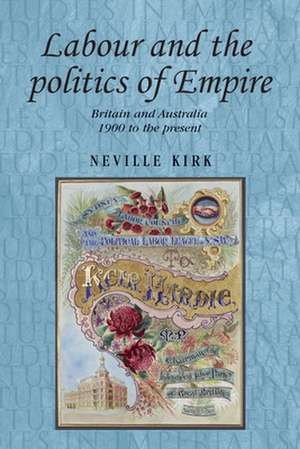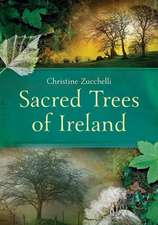Labour and the Politics of Empire: Studies in Imperialism
Autor Neville Kirken Limba Engleză Paperback – 27 feb 2014
| Toate formatele și edițiile | Preț | Express |
|---|---|---|
| Paperback (1) | 207.56 lei 22-36 zile | +20.73 lei 5-11 zile |
| MANCHESTER UNIVERSITY PRESS – 27 feb 2014 | 207.56 lei 22-36 zile | +20.73 lei 5-11 zile |
| Hardback (1) | 725.73 lei 43-57 zile | |
| MANCHESTER UNIVERSITY PRESS – 31 aug 2011 | 725.73 lei 43-57 zile |
Din seria Studies in Imperialism
- 23%
 Preț: 727.23 lei
Preț: 727.23 lei -
 Preț: 246.07 lei
Preț: 246.07 lei -
 Preț: 155.83 lei
Preț: 155.83 lei -
 Preț: 156.15 lei
Preț: 156.15 lei -
 Preț: 207.27 lei
Preț: 207.27 lei - 23%
 Preț: 569.46 lei
Preț: 569.46 lei -
 Preț: 155.46 lei
Preț: 155.46 lei -
 Preț: 155.23 lei
Preț: 155.23 lei -
 Preț: 135.06 lei
Preț: 135.06 lei -
 Preț: 245.95 lei
Preț: 245.95 lei - 23%
 Preț: 537.27 lei
Preț: 537.27 lei - 14%
 Preț: 522.40 lei
Preț: 522.40 lei - 23%
 Preț: 537.68 lei
Preț: 537.68 lei -
 Preț: 155.38 lei
Preț: 155.38 lei -
 Preț: 207.93 lei
Preț: 207.93 lei - 23%
 Preț: 537.75 lei
Preț: 537.75 lei -
 Preț: 208.18 lei
Preț: 208.18 lei -
 Preț: 155.31 lei
Preț: 155.31 lei - 23%
 Preț: 537.99 lei
Preț: 537.99 lei -
 Preț: 247.93 lei
Preț: 247.93 lei - 14%
 Preț: 522.49 lei
Preț: 522.49 lei -
 Preț: 448.98 lei
Preț: 448.98 lei -
 Preț: 136.61 lei
Preț: 136.61 lei -
 Preț: 226.86 lei
Preț: 226.86 lei -
 Preț: 246.89 lei
Preț: 246.89 lei -
 Preț: 208.41 lei
Preț: 208.41 lei -
 Preț: 156.45 lei
Preț: 156.45 lei - 23%
 Preț: 537.99 lei
Preț: 537.99 lei - 23%
 Preț: 538.22 lei
Preț: 538.22 lei -
 Preț: 207.19 lei
Preț: 207.19 lei -
 Preț: 207.01 lei
Preț: 207.01 lei -
 Preț: 206.35 lei
Preț: 206.35 lei -
 Preț: 207.19 lei
Preț: 207.19 lei - 23%
 Preț: 537.36 lei
Preț: 537.36 lei -
 Preț: 206.67 lei
Preț: 206.67 lei - 23%
 Preț: 537.64 lei
Preț: 537.64 lei - 23%
 Preț: 569.21 lei
Preț: 569.21 lei - 23%
 Preț: 573.24 lei
Preț: 573.24 lei -
 Preț: 295.45 lei
Preț: 295.45 lei -
 Preț: 155.74 lei
Preț: 155.74 lei -
 Preț: 246.40 lei
Preț: 246.40 lei -
 Preț: 247.76 lei
Preț: 247.76 lei -
 Preț: 155.63 lei
Preț: 155.63 lei - 23%
 Preț: 723.67 lei
Preț: 723.67 lei -
 Preț: 222.63 lei
Preț: 222.63 lei -
 Preț: 225.74 lei
Preț: 225.74 lei -
 Preț: 284.31 lei
Preț: 284.31 lei - 23%
 Preț: 725.00 lei
Preț: 725.00 lei
Preț: 207.56 lei
Nou
Puncte Express: 311
Preț estimativ în valută:
39.72€ • 41.58$ • 32.86£
39.72€ • 41.58$ • 32.86£
Carte disponibilă
Livrare economică 17-31 martie
Livrare express 28 februarie-06 martie pentru 30.72 lei
Preluare comenzi: 021 569.72.76
Specificații
ISBN-13: 9780719091315
ISBN-10: 0719091314
Pagini: 336
Dimensiuni: 156 x 234 x 18 mm
Greutate: 0.47 kg
Editura: MANCHESTER UNIVERSITY PRESS
Seria Studies in Imperialism
ISBN-10: 0719091314
Pagini: 336
Dimensiuni: 156 x 234 x 18 mm
Greutate: 0.47 kg
Editura: MANCHESTER UNIVERSITY PRESS
Seria Studies in Imperialism
Descriere
Descriere de la o altă ediție sau format:
A trans-national study of the neglected influences of nation, empire and race upon the development and electoral fortunes of the Labour Party in Britain and the Australian Labor Party from their formative years of the 1900s to the elections of 2010. It engages with traditional explanations of Labour politics based largely upon class.
A trans-national study of the neglected influences of nation, empire and race upon the development and electoral fortunes of the Labour Party in Britain and the Australian Labor Party from their formative years of the 1900s to the elections of 2010. It engages with traditional explanations of Labour politics based largely upon class.







